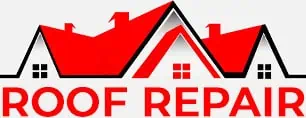Roof Repair Insurance

Overview
Roof repair insurance refers to coverage provided by homeowners insurance policies or specialized roof insurance plans to protect against damage to residential and commercial roofs. This type of insurance helps offset the costs of repairing or replacing a roof due to covered perils.
Roof repair insurance is designed to provide financial protection for property owners in the event their roof sustains damage. The purpose is to help cover the often significant costs associated with roof repairs or replacement. Benefits may include:
- Reduced out-of-pocket expenses for the property owner
- Protection against unexpected roof damage
- Potential coverage for both partial and full roof replacements
- Assistance with emergency repairs to prevent further damage
Types of Coverage
There are several ways property owners can obtain roof repair insurance:
Standard Homeowners Insurance
Most standard homeowners insurance policies include some level of coverage for roof damage as part of the dwelling coverage. However, the extent of coverage can vary significantly between policies and insurers.
Specialized Roof Insurance Policies
Some insurance companies offer standalone roof insurance policies that provide more comprehensive coverage specifically for roofs. These may offer higher coverage limits or protection against a wider range of perils.
Riders and Endorsements
Property owners can often add additional roof coverage to their existing homeowners policy through riders or endorsements. These add-ons can expand coverage for roofs beyond what’s included in the standard policy.
What’s Typically Covered
Common causes of roof damage that are typically covered by insurance include:
- Storm damage (wind, hail, etc.)
- Falling objects (e.g. tree limbs)
- Fire damage
- Vandalism
The specific perils covered will depend on the individual policy and type of coverage.
Common Exclusions
Roof repair insurance policies often exclude certain types of damage or situations, such as:
- Normal wear and tear
- Lack of maintenance
- Age-related deterioration
- Certain natural disasters (e.g. earthquakes, floods)
It’s important for property owners to carefully review their policies to understand what is and isn’t covered.
Factors Affecting Coverage
Several factors can influence the extent and cost of roof repair insurance coverage:
- Age of roof
- Materials used in roof construction
- Location of property (e.g. areas prone to severe weather)
- Maintenance history
Insurance companies may require inspections or documentation of roof condition before providing or renewing coverage.
Claims Process
The typical process for filing a roof repair insurance claim includes:
- Assessing damage (often through professional inspection)
- Filing a claim with the insurance company
- Working with insurance adjusters to evaluate the damage
- Obtaining repair estimates
- Completing repairs or replacement
- Receiving reimbursement from the insurance company
Considerations When Purchasing
When selecting roof repair insurance coverage, property owners should consider:
- Policy limits and deductibles
- Replacement cost vs. actual cash value coverage
- Additional living expenses coverage (if repairs require temporary relocation)
- Reputation and financial stability of the insurance provider
Tips for Homeowners
To maximize the benefits of roof repair insurance, homeowners should:
- Conduct regular roof inspections
- Perform proper maintenance and promptly address minor issues
- Document roof condition through photos and maintenance records
- Understand their policy coverage and limitations
Challenges and Controversies
Some common issues related to roof repair insurance claims include:
- Denied claims due to policy exclusions or disputes over cause of damage
- Partial coverage issues where insurers only cover a portion of needed repairs
- Insurance fraud related to inflated damage claims or unnecessary repairs
Alternatives to Insurance
Property owners may consider alternatives or supplements to traditional roof repair insurance, such as:
- Roof warranties provided by manufacturers or installers
- Savings accounts dedicated to future roof repairs
- Government assistance programs for disaster-related damage in certain areas
